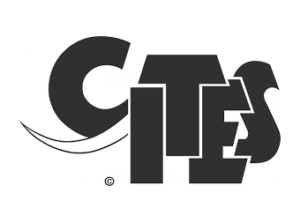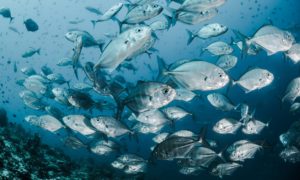Newsletter 30 Oct 2023
Environment: What’s Up in GENeva | 30 October – 5 November 2023

The Geneva Environment Network’s weekly newsletter includes the latest information on the global environmental agenda, main events, job vacancies, learning opportunities, as well as other useful resources and updates. Stay tuned and follow us also on X (Twitter), Facebook, LinkedIn, Instagram, and Youtube, or visit our website regularly for additional updates.
Image of the week | Screening of the Film Minamata at the International Conference Center Geneva (CICG), on Sunday 29 October 2023 — a special event to the fifth meeting of the Conference of the Parties to the Minamata Convention on Mercury. © Minamata Convention Secretariat, Kiara Worth.
Making Mercury History
The fifth meeting of the Conference of the Parties to the Minamata Convention on Mercury (COP-5) takes place this week in Geneva. → Follow the live coverage from the Earth Negotiation Bulletin and other useful information in our update on the meeting.
One thousand delegates are expected to convene at CICG to address various topics, including the phase-out from mercury-added products, amendment proposals, and the first full national reports on measures taken to implement the Convention at the national level. Delegates will also take stock of the conclusion of the second review of the Convention’s financial mechanism, as well as the recently adopted Global Framework on Chemicals and Kunming-Montreal Global Biodiversity Framework. → Read the 10 October 2023 Secretariat press release.
During the week, special events, knowledge labs, and exhibitions will be taking place. The Geneva Environment Network will co-organize and support two additional special events:
- Minamata Convention: A Decade of Global Commitment to Make Mercury History | As the Minamata Convention on Mercury enters its second decade, experts are buoyed by the progress of recent years. This special event will feature diverse voices and present the “Make Mercury History” photo exhibition installed at CICG, adding a visual dimension to the commemoration. To participate in person to this event on Monday 30 October 2023 from 13:15 to 14:45 CET, you must be registered to the COP-5. The event will also be streamed on YouTube.
- Mercury in cosmetics – more than what meets the eye | This session, co-organized by the Global Environment Facility and United Nations Environment Programme, seeks to question the promotion and normalization of skin lightening — used to inhibit the body’s production of melanin — and confront the perpetuation of harmful cultural norms. The event will take place on 31 October 2023 from 13:15 – 14:45 CET and will be streamed on YouTube.
Right to Science and Environment @ Social Forum 2023
The 2023 Social Forum — an annual meeting convened by the Human Rights Council, which serves as a unique space for open and interactive dialogue between civil society, representatives of Member States, and intergovernmental organizations — will take place on 2 and 3 November 2023 in Room XX at the Palais des Nations and online. This year’s Forum will focus on the contribution of science, technology, and innovation to the promotion of human rights, including in the context of post-pandemic recovery.
While science is indispensable for addressing current and future societal challenges, its role is more debated than ever in polarized, politicized, and often partial terms. Scientists often find themselves under attack and their institutional foundations and spaces eroding. This side event to the 2023 Social Forum, “Enhancing the right to science and the planetary crisis: A roundtable on emerging trends and issues“, aims to highlight how this right has the potential to improve the enjoyment of many other rights and provide essential building blocks and responses to key sustainability challenges of our times — including the triple planetary crisis of climate change, biodiversity loss, and pollution. → Join this side event, organized by the University of Geneva, the UN Educational, Scientific and Cultural Organization (UNESCO), the Swiss Commission for UNESCO, and the Geneva Environment Network, on 2 November 2023 from 14:00 to 15:00 CET in Room XXII at Palais des Nations. The event will be streamed live on YouTube.
Other notable events taking place during the Forum include:
- Opening | 2 November 2023 | 10:00 – 10:30 CET
- Roundtable on the Triple Planetary Crisis: The Contribution of STI and Science-Based Decision-Making to the Rights of Present and Future Generations | 2 November 2023 | 15:05 – 15:50 CET
- ‘Dreaming and Enabling’ for Present and Future Generations – International Solidarity and Cooperation, Partnership and Capacity-Building: Youth Empowerment Initiative for Sustainable Development Guided by Youth-Led Start-Ups | 3 November 2023 | 16:30 – 17:45 CET
- Closing | 3 November 2023 | 17:45 – 18:00 CET
Environment @ Geneva Peace Week 2023
The overarching theme for this year’s 10th edition of the Geneva Peace Week (GPW) is “Building Trust, Building Peace: An Agenda for the Future”. Sustainable peace is not just a noble goal but also a critical vector for development, cooperation, and innovation for the larger good of humanity. One of the three thematic tracks of GPW 2023 is Addressing climate change through just transitions, considering practical aspects of the processes, and looking into lessons to create more just and equity as we face climate change. → Find the list of environment-related events on our page Geneva Peace Week 2023.
Moving Closer to Entry into Force of the Fisheries Subsidies Agreement
During the two-day Senior Officials Meeting at the World Trade Organization’s headquarters in Geneva, seven WTO members — Fiji followed Albania, Australia, Botswana, Cuba, Côte d’Ivoire, the Republic of Korea, and Saint Lucia — deposited their instruments of acceptance of the Agreement on Fisheries Subsidies, propelling the much-anticipated entry into force of the historic agreement for ocean sustainability closer to realization.
The agreement was achieved at the 12th WTO Ministerial Conference (MC12) in Geneva in June 2022 after more than twenty years of negotiations. Under this new treaty, subsidies for vessels and operators engaged in illegal, unreported, or unregulated (IUU) fishing are prohibited. The agreement further bans support for fishing in overfished stocks and for fishing in unregulated high seas. Provisions on special and differential treatment are provided to allow flexibility for developing countries. With now 52 WTO members having formally accepted the Agreement, 46% of the necessary signatures for the Agreement to come into effect (two-thirds of the WTO membership) have been secured. → Learn more on the Global Response to Overfishing and the Role of Geneva.
Two Weeks to the Next Plastics Treaty Negotiation Session
Preparations continue in Geneva and beyond for the third session of the Intergovernmental Negotiating Committee to develop an international legally binding instrument on plastic pollution (INC-3). The Secretariat of the Intergovernmental Negotiating Committee to develop an international legally binding instrument on plastic pollution released last week the Synthesis report on the submissions received on elements not discussed at the second session, such as principles and scope of the instrument (UNEP/PP/INC.3/INF/1). Drawing on the 61 submissions received by Members and the over 100 from observers, the document reflects the inputs with regard to the scope, principles, and additional considerations of the instrument following the order of the placeholders in the INC Chair Zero Draft Text (UNEP/PP/INC.3/4.3). It will facilitate discussions of the one-day preparatory meeting of 11 November 2023, as well as discussions on these matters at the third session.
Events of interest to take place this week include:
- Circular City Insights: Global Plastics Treaty (INC-3) | The webinar, organized by ICLEI, UNEP, the Quebec Government, UCLG, WWF, C40, and the Global Cities Hub, aims to raise awareness amongst cities and subnational governments on the process being followed by the INC and progress thus far. It analyzes the zero-draft document from a cities and sub-national perspective – focusing on implications for all levels of governments and opportunities, and exploring how local and subnational governments intervention can enhance the process. → Register to attend on 31 October 2023 on Zoom from 16:00 CET.
- WHO Health & Plastics Dialogues | One Health | The third dialogue of the series launched by WHO in preparation for INC-3 will explore the role of the One Health approach in addressing health risks related to all stages of the plastics lifecycle. → Register on Zoom to attend on 2 November 2023 from 14:30 CET
- Regional insights to unlock financing and advance investment in plastics circularity in emerging economies: Africa | Co-hosted by the World Economic Forum Global Plastic Action Partnership and The Circulate Initiative, this webinar will discuss opportunities and challenges of investing in plastics circularity including success stories from the region and insights on enabling a conducive policy environment for investment. → Register on Zoom to attend on 1 November 2023 from 15:00 CET
Recently released documents and news include:
- Possible Approaches to Addressing Existing Plastic Pollution in an International Treaty | Ministry of Environment of Denmark | October 2023
The report aims at elaborating on possible approaches to address existing plastic pollution in an international treaty. To aid decision-makers in the future development of positions around the future treaty, it conducted a pro and con analysis of potential options to explore the potential benefits and issues of various options from a scientific, technical, and legal perspective. - The Plastic Pollution Fee: Outlining the options ahead of INC-3 | Minderoo Foundation | October 2023
To end plastic pollution, including in the marine environment, to protect health and the environment, several stakeholders have proposed that the negotiated legally binding instrument incorporates a plastic pollution fee. The INC Chair’s Zero Draft text explicitly proposes a plastic pollution fee as an innovative financing instrument and recognizes the potential of a Fee as an economic instrument. - Tackling Subsidies for Plastic Production: Key Considerations for the Plastics Treaty Negotiations | CIEL | October 2023
To develop an international legally binding instrument on plastic pollution, including in the marine environment, it is essential for policymakers to holistically analyze — and work toward removing — existing fiscal incentives and subsidies for the production of primary plastics. - Are Your Children’s Toys Hazardous Waste? High levels of chlorinated paraffins in plastic toys from ten countries | IPEN | 24 October 2023
Key findings of the analysis of 31 toys purchased in ten countries, demonstrate that current gaps in the regulation of toxic chemicals are exposing children to some of the most hazardous chemicals in the world, calling for regulating classes of chemicals to prevent regrettable substitutions) and show the importance of transparency and traceability of chemicals used in plastics. - Registration to Plastics INC-4 open | The fourth session of the Plastics INC (INC-4), will take place from 21 – 30 April 2024 in Ottawa, Canada. The deadline for registration is 26 February 2024. → Find more information about registration.
Risk Tipping Points with Irreversible Impacts on People and Planet
The 2023 edition of the Interconnected Disaster Risks report — an annual science-based report published by the United Nations University Institute for Environment and Human Security (UNU-EHS) — proposes a new category of risk tipping points, defined as “[…] the moment at which a given socio-ecological system is no longer able to buffer risks and provide its expected functions, after which the risk of catastrophic impacts to these systems increases substantially.”
- The analyzed six interconnected risk tipping points caused and exacerbated by unsustainable resource extraction and pollution are: accelerating extinctions; groundwater depletion; mountain glaciers melting; space debris; unbearable heat; and uninsurable future. While not being the only systems at risk of tipping, the report highlights how the capacity to foresee these offers possibilities to make informed decisions and take action to avoid their worst effects.
- The report stresses the unprecedented rates of glaciers melting over the past two decades. Between 2000 and 2019, glaciers lost 267 gigatons of ice per year, roughly equivalent to the mass of 46,500 Great Pyramids of Giza. It foresees that by 2100, around 50 percent of glaciers (excluding Greenland and Antarctica) will be lost, even if global warming can be limited to 1.5°C.
Last week, various studies, reports and news reflected on the status of the various tipping points:
- Adapting to the climate and water crises: Joint position paper for a water resilient Europe | EEA, EEB, ERN, the Nature Conservancy, Wetlands International and WWF | 26 October 2023
At the core of a water and climate-resilient Europe is changing the way we value and manage water. The priority for adapting to climate and water crises should be to protect and restore freshwater ecosystems and re-establish natural or near-natural water regimes. Healthy freshwater ecosystems replenish aquifers, sustain the water cycle, and ensure that rivers, lakes, wetlands, and groundwater are in good condition. - Historic declaration offers hope for world’s endangered river dolphins | WWF | 24 October 2023
Adopted by Asian and South American range states from Colombia to India, the Global Declaration for River Dolphins aims to halt the decline of all river dolphin species and increase the most vulnerable populations. It will scale up collective efforts to safeguard the remaining river dolphin species by developing and funding measures to eradicate gillnets, reduce pollution, expand research, and increase protected areas. - Forest Pathways Report 2023 | WWF | 24 October 2023
WWF’s report comes just two years on from pledges made at the UN Climate Change Conference, COP26, by over 130 countries representing 85% of the world’s forests to halt and reverse deforestation by 2030.The analysis shows that the speed and intensity with which forests around the world are still being destroyed, and the lack of progress on commitments, leaves the world clearly in danger of missing vital targets. - Sustainable Wildlife Management is essential to achieve key targets of the Kunming-Montreal Global Biodiversity Framework | Collaborative Partnership on Sustainable Wildlife Management (CPW) | 24 October 2023
The IPBES Sustainable Use of Wild Species Assessment highlights how around 50,000 wild species of animals, plants, and fungi are fundamental for the survival of the ecosystems that support them and are a cornerstone to the livelihoods and cultures of Indigenous Peoples and Local Communities. The accelerating global biodiversity crisis, increasing human populations, technological advancements, and growing use and trade threaten wild species and their vital role for people and the planet. - Committed future ice-shelf melt | Taimoor Sohail | Nature Climate Change | 23 October 2023
The collapse of the West Antarctic Ice Sheet is a worrying climate tipping point, with the potential to raise the global sea level by up to 5.3 metres. An assessment of future climate scenarios suggests that accelerated melting of ice shelves in West Antarctica is locked in, even for the most ambitious emissions reduction scenarios. - Unavoidable future increase in West Antarctic ice-shelf melting over the twenty-first century | Kaitlin A. Naughten, Paul R. Holland & Jan De Rydt | Nature Climate Change | 23 October 2023
Ocean-driven melting of floating ice shelves in the Amundsen Sea is currently the main process controlling Antarctica’s contribution to sea-level rise. Using a regional ocean model, this study foresees future projections of ice-shelf melting in the Amundsen Sea, suggesting that mitigation of greenhouse gases now has limited power to prevent ocean warming that could lead to the collapse of the West Antarctic Ice Sheet. - Investing in Extinction: How the global financial sector profits from traditional medicine firms using threatened species | European Investigation Agency | 23 October 2023
Leopards and pangolins are threatened with extinction and are among the most trafficked mammals on the planet. The two species are listed on Appendix I of the Convention on International Trade in Endangered Species of Wild Fauna and Flora (CITES), which prohibits international commercial trade in them, their parts and derivatives. - High Cost of Cheap Water: The True Value of Water and Freshwater Ecosystems to People and Planet | WWF and Dalberg | October 2023
Water is the world’s most precious and exploited resource. Yet it has always been undervalued – along with the rivers, lakes, wetlands and aquifers that store and supply it. This water blindness – the lack of awareness and understanding of the importance of water resources – has come at an immense cost: the world is facing a pervasive and worsening water crisis that is undermining human and planetary health. - Water crises show need to link management of underground and surface waters in international basins, urge countries and UN | UNECE | 20 October 2023
Discussions in Geneva in the framework of the UN Convention on the Protection and Use of Transboundary Watercourses and International Lakes (UN Water Convention) have warned that to ensure sustainable water use, holistic joint water resource management approaches encompassing both groundwater and surface water will be needed.
Happening Abroad
- Pre-COP28, the preparatory meeting | Prior to the 28th Conference of Parties of the UNFCCC, a preparatory meeting will take place in person in Abu Dhabi, United Arab Emirates, on 30-31 October 2023. Pre-COP28 is a critical milestone on the road to the 2023 UN Climate Change Conference.
- 3rd Part of the 28th Annual Session of the International Seabed Authority| ISA28 Council will meet from 30 October to 8 November 2023. The Council will address various agenda items, including resumed consideration of the draft regulations on the exploitation of mineral resources in the Area. → Read the information note for further details and follow the Earth Negotiations Bulletin live coverage.
What (Else) To Read Next?
- Compliance with international wildlife commitments and urgent wildlife conservation matters to be tackled at CITES annual meeting | CITES Press Release | 27 October 2023
The survival of a myriad of wild plants and animals will be addressed in the week-long 77th meeting of the CITES Standing Committee. The packed agenda of 77 items will address the most pressing global wildlife trade issues concerning high-value timber and marine species as well as iconic species like big cats, jaguars, vaquitas, rhinos, elephants, and tropical birds starting on Monday 6 November in Geneva. - Open Science Conference: use our climate knowledge and tools for action | WMO | 27 October 2023
Under the banner of Climate science for a sustainable future for all, the outcomes of the Open Science Conference in Rwanda – the first to be held in Africa – will be summarized in the Kigali Declaration. This will issue a call to the global community to act now to save the planet before it is too late, and for a big increase in multilateral, accessible, and equitable investment in climate science and services. - UNECE calls on fashion industry to fully embrace sustainability | UNECE | 27 October 2023
UNECE has a key role to play in supporting sustainability and traceability. Through consultation with hundreds of industry insiders and experts, UNECE has developed a UN-brokered toolbox to help garment and footwear makers to ensure the transparency and traceability of their value chain. The Sustainability Pledge, encourages companies across the sector to announce their commitments to transparency and traceability.
- Three Basins Summit: WWF calls for robust alliance to take action and scale up finance for tropical forests | WWF | 26 October 2023
As the summit of the world’s three largest forest basins, Amazon, Congo, and South East Asia and South West Pacific, opens in Brazzaville, WWF calls on governments of tropical forest countries to build a robust alliance to coordinate and accelerate efforts to conserve, sustainably manage and restore precious forest ecosystems.
- Unlocking finance for forests in Africa: from agreements to action | Kirsten Schuijt and Kevin Kariuki | Geneva Solutions | 26 October 2023
In a time of emergency for our planet, we must urgently move beyond global agreements to end deforestation to delivering transformative action. This week’s Three Basins Summit is an opportunity to help unlock finance and action for forests in Africa and in the rest of the world. - WTO and partner organizations unveil Trade House pavilion for UN COP28 climate summit | WTO | 26 October 2023
On 26 October, the WTO announced it will be co-hosting the Trade House pavilion at the United Nations COP28 climate summit with three other international organizations — the International Chamber of Commerce (ICC), the International Trade Centre (ITC), and the United Nations Conference on Trade and Development (UNCTAD) — as a pioneering initiative that highlights trade’s pivotal role in being part of the solution to the climate crisis. - Rapid Environmental Assessment of Kakhovka Dam Breach Ukraine | UNEP | 25 October 2023
Much of the damage caused by the breach of Ukraine’s Kakhovka dam in June 2023 is irreversible, with likely changes to the environment that could have impacts on ecosystems and human health.
- Time to treat the climate and nature crisis as one indivisible global health emergency | Kamran Abbasi, Parveen Ali, Virginia Barbour et. al | The BMJ | 25 October 2023
Over 200 health journals call on the United Nations, political leaders, and health professionals to recognise that climate change and biodiversity loss are one indivisible crisis and must be tackled together to preserve health and avoid catastrophe. This overall environmental crisis is now so severe as to be a global health emergency. - The 2023 state of the climate report: Entering uncharted territory | American Institute of Biological Sciences | Bio Science | 24 October 2023
Current trends reveal new all-time climate-related records and deeply concerning patterns of climate-related disasters. At the same time, there is minimal progress by humanity in combating climate change.
Events
See all

Body Meeting
5th meeting of the Conference of the Parties (COP-5)
30 Oct – 03 Nov 2023
Minamata Convention on Mercury


Body Meeting
(WP.5/GE.3) Group of Experts on Assessment of Climate Change Impacts and Adaptation for Inland Transport (25th session)
30 – 31 Oct 2023
Palais des Nations | Room IX
UNECE

Conference
Minamata Convention: A Decade of Global Commitment to Make Mercury History | Minamata COP-5 Special Event
30 Oct 2023 13:15 – 14:45
CICG
Minamata Convention on Mercury
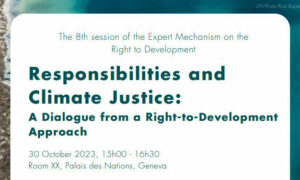
Conference
Responsibilities and Climate Justice: A Dialogue from a Right-to-Development Approach | 8th session of the Expert Mechanism on the Right to Development
30 Oct 2023 15:00 – 16:30
Palais des Nations | Room XX
HRC

Virtual
Worldwide Voices: Perspectives in tackling lead
30 Oct 2023 15:00
Online | Zoom
GGKP, WHO, BRS, UNEP
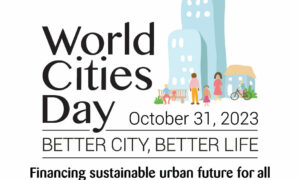

Conference
Mercury in Cosmetics – More than what meets the eye | Minamata COP-5 Special Event
31 Oct 2023 13:15 – 14:45
CICG | Room A
UNEP, GEF

Virtual
ITU Webinar | World cities day: digital transformation for a better urban life
31 Oct 2023 14:00 – 15:00
Online | Zoom
ITU
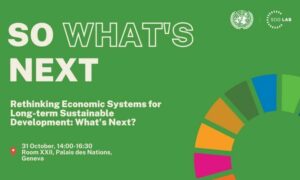
Conference
Rethinking Economic Systems for Long-term Sustainable Development – What’s Next?
31 Oct 2023 14:00 – 16:30
Palais des Nations | Room XXII & Online | Webex
SDG Lab

Virtual
Circular City Insights: Global Plastics Treaty (INC-3)
31 Oct 2023 16:00
Online | Zoom
Global Cities Hub - Geneva, ICLEI, UNEP, WWF
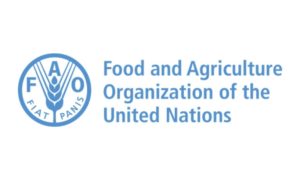
Conference
FAO SIDS Solutions Dialogue – Can an agrifood systems approach help achieve healthy diets, reduce NCDs, and improve climate resilience in the SIDS?
31 Oct 2023 16:00 – 17:30
Palais des Nations | Room H/2-208 & Online
FAO

Body Meeting
28th session of the Committee on Environmental Policy
01 – 03 Nov 2023
Palais des Nations | Room XVII
UNECE

Workshop
Operationalizing One Health and Planetary Health in Humanitarian Settings
01 – 02 Nov 2023
Institute of Global Health | Campus Biotech
UNIGE, HUG, GHF
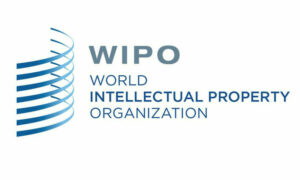
Body Meeting
WIPO Green Advisory Board Meeting | WIPO GREEN 10th anniversary
02 Nov 2023
WIPO & Online | Zoom
WIPO

Local
Remise du Prix SPG du Développement Durable
01 Nov 2023 09:30 – 11:00
Kiosque des Bastions
UNIGE, SPG-Rytz Group

Virtual
EPI-WIN Webinar: Preventing Epidemics and Pandemics through One Health in Practice – Voices from One Health Professionals
01 Nov 2023 13:00 – 14:00
Online | Zoom
WHO


Conference
High-Level Dialogue on Indigenous Peoples, Traditional Cultural Expressions and Fashion
02 Nov 2023 09:00 – 16:00
WIPO & Online | Zoom
WIPO

Local
Comment sensibiliser le personnel aux enjeux environnementaux et climatiques ?
02 Nov 2023 11:00 – 12:00
Online | Zoom
ecoLive - Environmental Management

Conference
Enhancing the Right to Science and the Planetary Crisis: A roundtable on emerging trends and issues | 2023 Social Forum
02 Nov 2023 14:00 – 15:00
Palais des Nations, Room XXII & Online
UNIGE, Swiss Commission for UNESCO, UNESCO, GEN

Conference
High-level Launch | 2023 State of Climate Services for Health Report
02 Nov 2023 14:00 – 15:30
Online
WMO


Conference
Launch Event | Towards a New Resolution on Climate Change and Health
02 Nov 2023 15:30 – 17:00
Palais des Nations | Room VIII & Online | Webex
Geneva Global Health Platform


Virtual
One Health Implementation: How could we translate the One Health approach into actions at all levels?
03 Nov 2023 09:00 – 10:30
Online | Zoom
FAO, UNEP, WOAH, WHO
Jobs
See all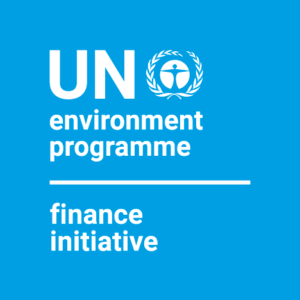
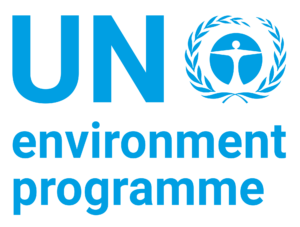
Consultant
Communication and Global Events Management Consultant
30 Oct 2023
UNEP Resources and Markets Branch




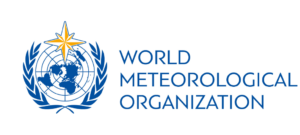
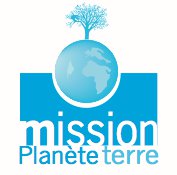
Volunteer
Call for Volunteers | International Film Festival on Glaciers 2023
05 Nov 2023
Mission Planète Terre
